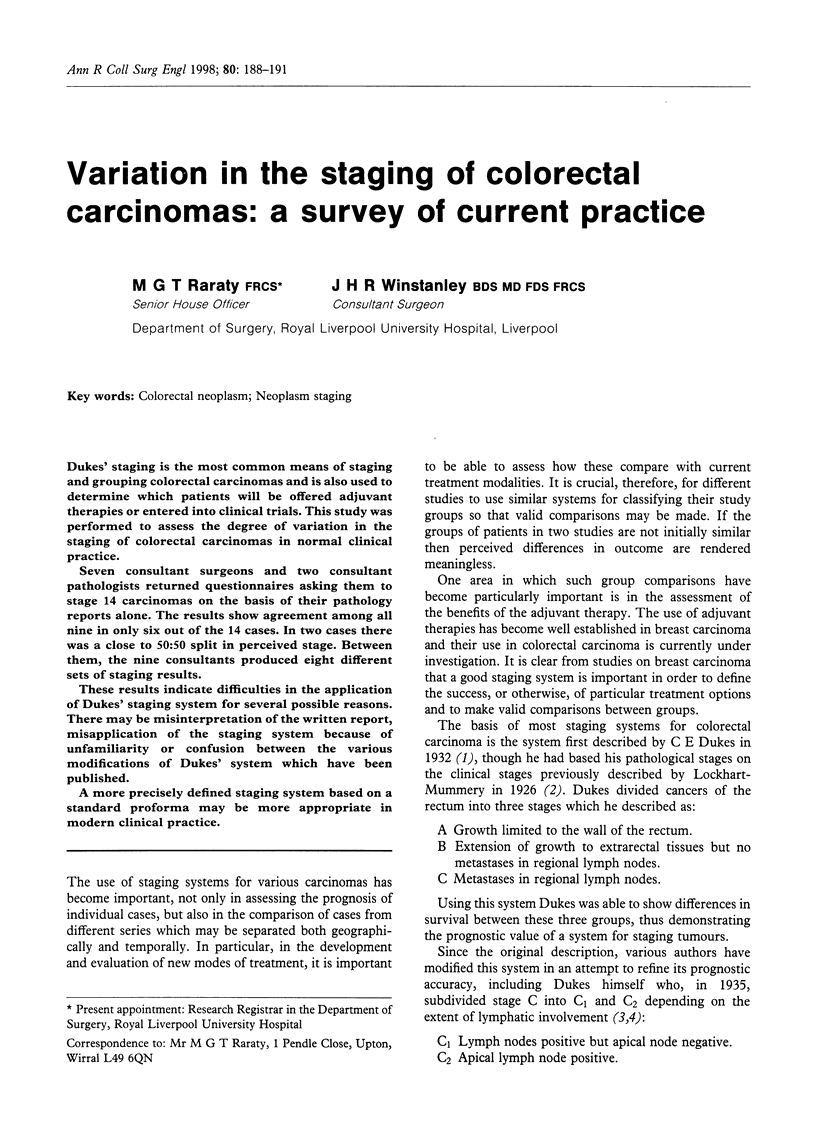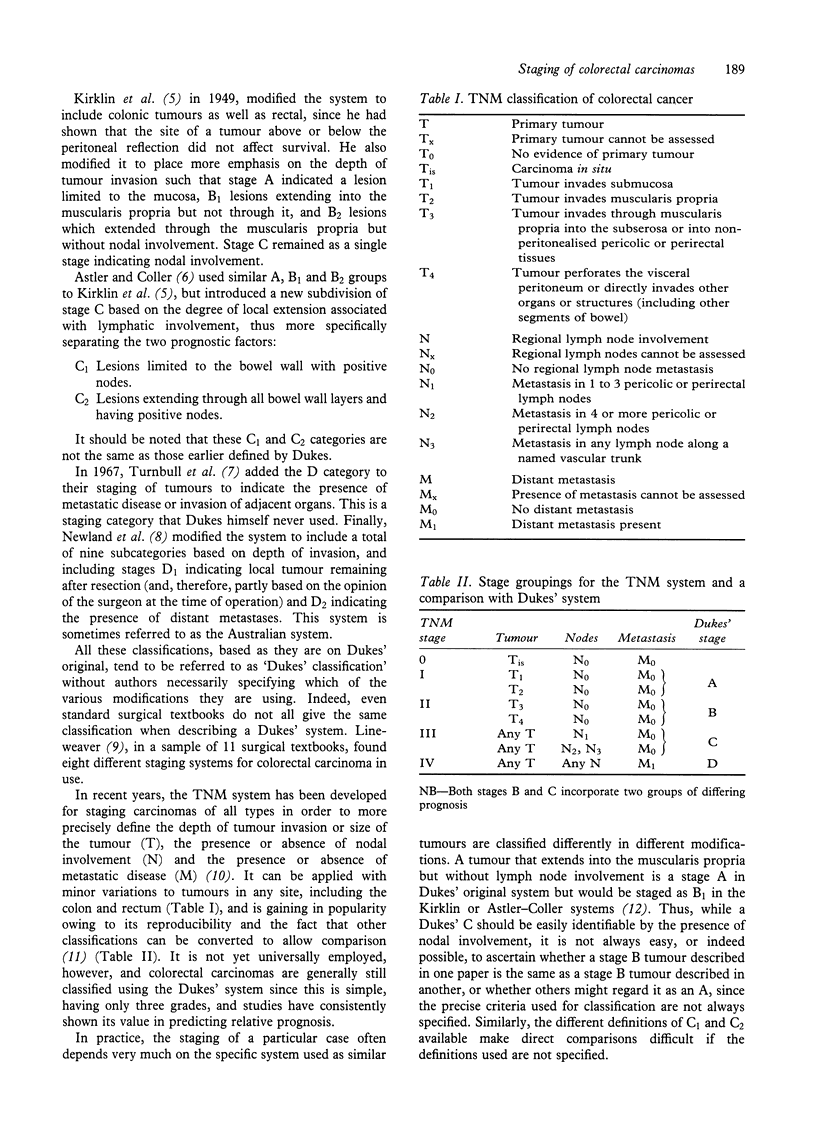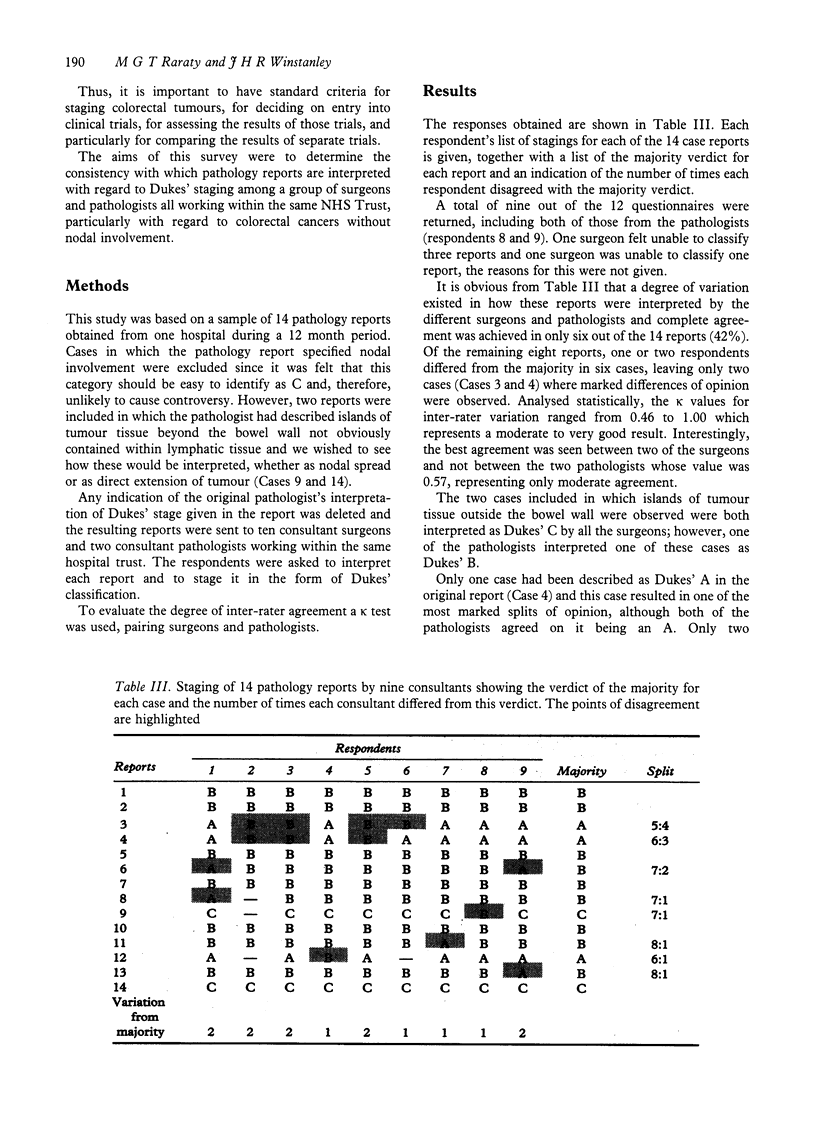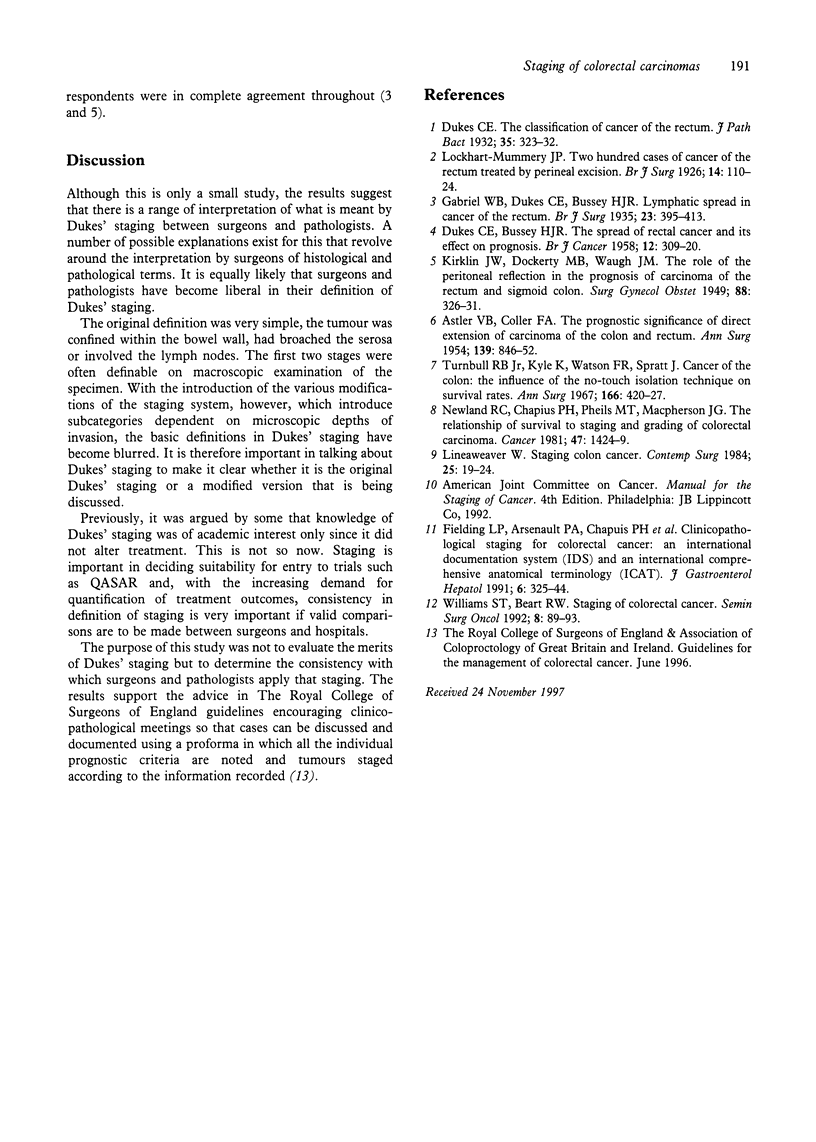Abstract
Dukes' staging is the most common means of staging and grouping colorectal carcinomas and is also used to determine which patients will be offered adjuvant therapies or entered into clinical trials. This study was performed to assess the degree of variation in the staging of colorectal carcinomas in normal clinical practice. Seven consultant surgeons and two consultant pathologists returned questionnaires asking them to stage 14 carcinomas on the basis of their pathology reports alone. The results show agreement among all nine in only six out of the 14 cases. In two cases there was a close to 50:50 split in perceived stage. Between them, the nine consultants produced eight different sets of staging results. These results indicate difficulties in the application of Dukes' staging system for several possible reasons. There may be misinterpretation of the written report, misapplication of the staging system because of unfamiliarity or confusion between the various modifications of Dukes' system which have been published. A more precisely defined staging system based on a standard proforma may be more appropriate in modern clinical practice.
Full text
PDF



Selected References
These references are in PubMed. This may not be the complete list of references from this article.
- ASTLER V. B., COLLER F. A. The prognostic significance of direct extension of carcinoma of the colon and rectum. Ann Surg. 1954 Jun;139(6):846–852. doi: 10.1097/00000658-195406000-00015. [DOI] [PMC free article] [PubMed] [Google Scholar]
- DUKES C. E., BUSSEY H. J. The spread of rectal cancer and its effect on prognosis. Br J Cancer. 1958 Sep;12(3):309–320. doi: 10.1038/bjc.1958.37. [DOI] [PMC free article] [PubMed] [Google Scholar]
- Fielding L. P., Arsenault P. A., Chapuis P. H., Dent O., Gathright B., Hardcastle J. D., Hermanek P., Jass J. R., Newland R. C. Clinicopathological staging for colorectal cancer: an International Documentation System (IDS) and an International Comprehensive Anatomical Terminology (ICAT). J Gastroenterol Hepatol. 1991 Jul-Aug;6(4):325–344. doi: 10.1111/j.1440-1746.1991.tb00867.x. [DOI] [PubMed] [Google Scholar]
- KIRKLIN J. W., DOCKERTY M. B., WAUGH J. M. The role of the peritoneal reflection in the prognosis of carcinoma of the rectum and sigmoid colon. Surg Gynecol Obstet. 1949 Mar;88(3):326–331. [PubMed] [Google Scholar]
- Newland R. C., Chapuis P. H., Pheils M. T., MacPherson J. G. The relationship of survival to staging and grading of colorectal carcinoma: a prospective study of 503 cases. Cancer. 1981 Mar 15;47(6):1424–1429. doi: 10.1002/1097-0142(19810315)47:6<1424::aid-cncr2820470630>3.0.co;2-o. [DOI] [PubMed] [Google Scholar]
- Turnbull R. B., Jr, Kyle K., Watson F. R., Spratt J. Cancer of the colon: the influence of the no-touch isolation technic on survival rates. Ann Surg. 1967 Sep;166(3):420–427. doi: 10.1097/00000658-196709000-00010. [DOI] [PMC free article] [PubMed] [Google Scholar]
- Williams S. T., Beart R. W., Jr Staging of colorectal cancer. Semin Surg Oncol. 1992 Mar-Apr;8(2):89–93. doi: 10.1002/ssu.2980080208. [DOI] [PubMed] [Google Scholar]


